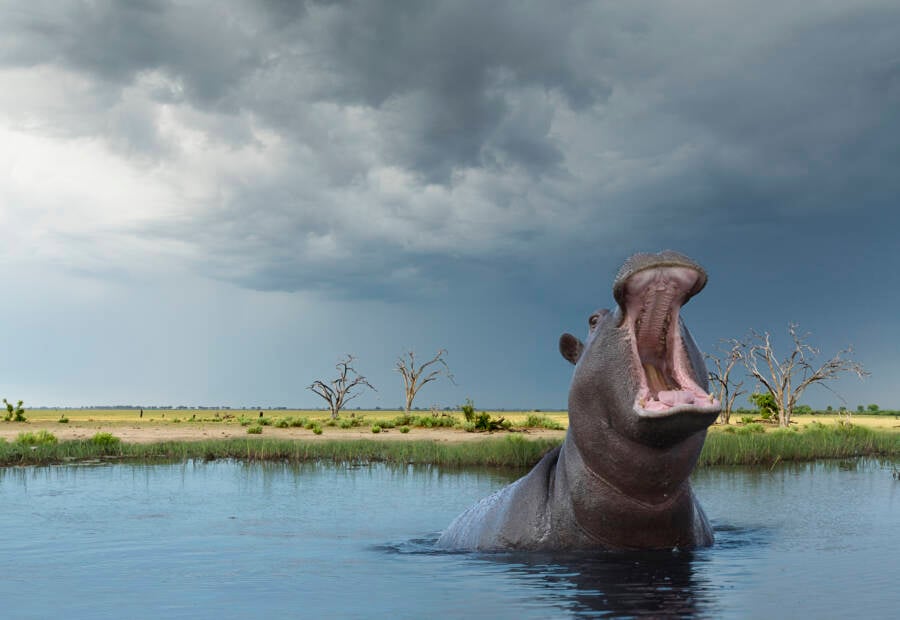The hippo was warded off by a stone-throwing bystander, and the boy was rushed to the hospital.

Buena Vista Images/Getty ImagesHippos are the deadliest large land animal on Earth, responsible for 500 deaths each year in Africa.
It’s not something people think about much in the West, but hippos are some of the most dangerous creatures on the planet. To those who live in regions where the amphibious animals roam free, however, this is not an easy fact to forget — especially when these fearsome creatures attack.
Such was the case on December 4, when a two-year-old boy named Iga Paul was grabbed by a hippo while playing near his home. And, as People reports, the hippo “swallowed half of his body” before spitting the child out.
Thankfully, the incident was witnessed by a bystander who sprung into action, lobbing stones at the hippo until it let the toddler go.
“It took the bravery of a one Chrispas Bagonza, who was nearby, to save the victim after he stoned the hippo and scared it, causing it to release the victim from its mouth,” police said.

FacebookIga Paul was rushed to a nearby hospital for treatment and given a rabies vaccine as a precautionary measure, and has made a full recovery.
The child was rushed to a nearby hospital for treatment and given a rabies vaccine as a precautionary measure. According to police, the young boy made a full recovery and was discharged, returning home with his parents.
“Although the hippo was scared back into the lake, all residents near animal sanctuaries and habitats, should know that wild animals are very dangerous,” reads a police statement. “Instinctually, wild animals see humans as a threat, and any interaction can cause them to act strangely or aggressively.”
However, police acknowledged that this was the first incident in which a hippo strayed from nearby Lake Edward, roughly half a mile away, and attacked a young child.
That said, it is hardly the first instance of a wild hippo attack. In fact, according to the BBC’s Wildlife magazine, the hippopotamus is widely considered to be the deadliest large land animal on the planet, with an estimated 500 deaths per year in Africa attributed to the ferocious beasts.
Hippos are dangerous for a litany of reasons, but the chief contributors are their size, speed, and aggressive nature.
On average, they weigh around 3,300 pounds, but some have been known to weigh as much as 9,000. Despite this, they can easily outrun a human, reaching speeds of 30 miles per hour on land and 5 miles per hour in the water — more than twice the average swimming speed for humans.
And while hippos can’t breathe underwater, they can remain fully submerged for five minutes, meaning they aren’t always easy to detect until it’s too late.
Even seemingly domesticated hippos have turned on their owners, proving once again that not all animals should be kept as pets.
The best course of action, then, would be to avoid wild hippos altogether, if you can. And if not, find somewhere to hide.
After reading about this terrifying run-in with nature, read about the grandmother who went missing — and then later found swallowed whole by a python. Or, watch this video of a young hippo trying to play with a crocodile.





